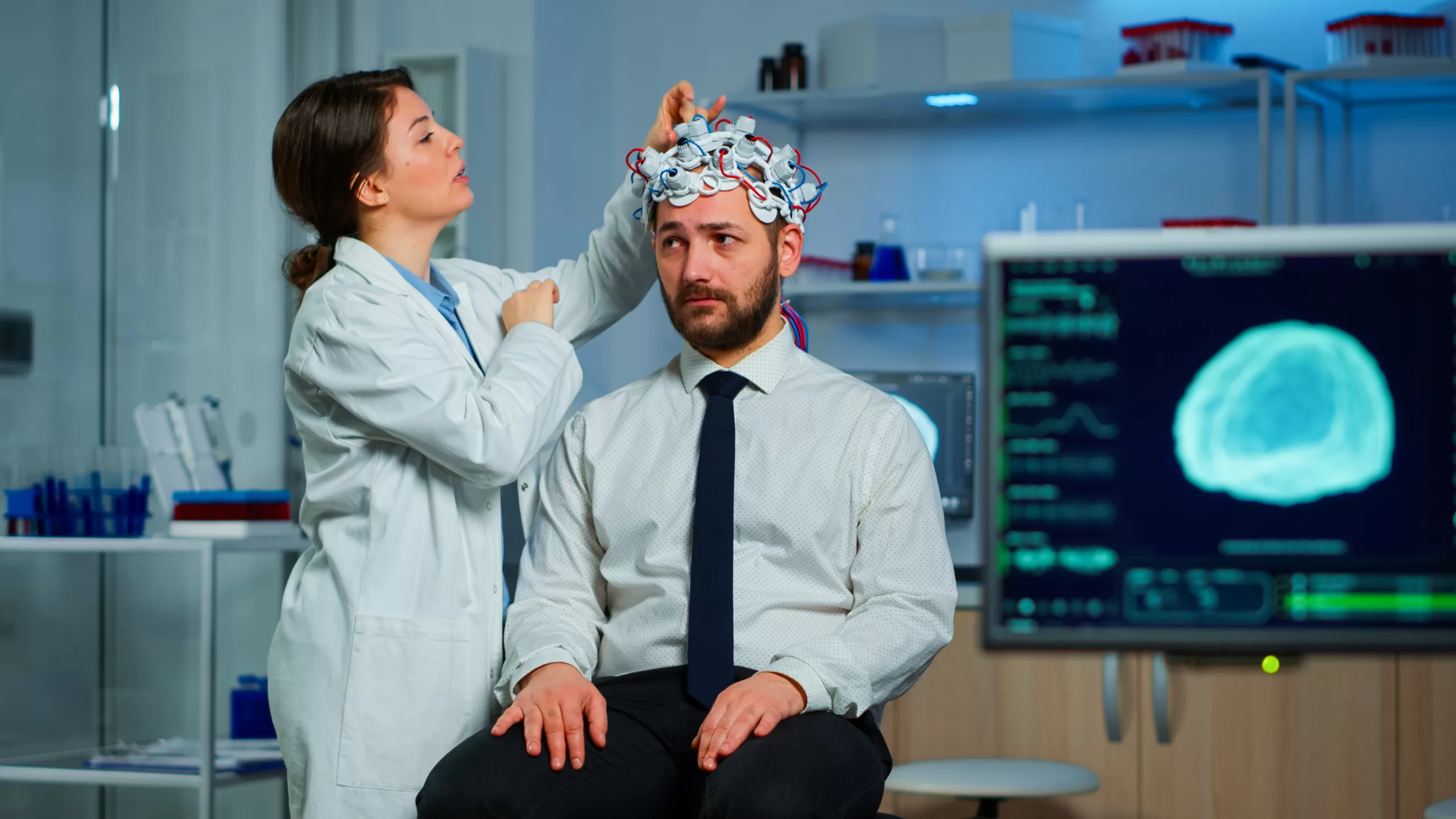What are the different treatments for Brain Tumor & Which one can you choose?

Brain tumor patients are now more hopeful than ever, thanks to the advances in research that have enabled the development of innovative treatments, such as tumor-treating fields.
The diagnosis & treatment for a brain tumor is based on many factors, including the type and extent of the tumor, your individual medical history, and any other considerations.
Treatments recommended for brain tumors may involve one or more of the following: Surgery, Radiation Therapy, Chemotherapy, Targeted Drug Therapy, Tumor Treating Fields, Clinical Trials & Follow Up Care, and Rehabilitation. It is important to consult your doctor before picking out a specific approach.
Table of contents
Brain Tumor Surgery
Brain tumors may require surgery for treatment, and various surgical methods are depending on their size & position. In many cases, a single surgery is all that’s necessary to remove the tumor. Surgery is one of the most popular treatments for brain tumors.
- Craniotomy, which involves removing a portion of the skull temporarily to provide surgeons access to the brain, is becoming popular. Awake brain tumor surgery is another procedure that is gaining momentum. In this technique, the patient is sedated and comfortable but remains awake while surgeons ensure the normal functioning of the brain.
- Neuroendoscopic surgery is a non-invasive technique employed by surgeons which involves entering the brain through alternative pathways such as the nose to reach specific areas in the brain with minimal scarring.
- MRI-guided laser ablation and LITT are two treatments employed by Radiologists & Neurosurgeons, aided by computer technology and intraoperative imaging. The accuracy of these measures helps to pinpoint the tumor and precisely get rid of cancerous cells with lasers or high temperatures.
- To get a comprehensive diagnosis of a brain tumor, doctors may take a sample of the tissue for further examination through biopsy. This microscopic examination can help them identify the type and severity of the tumor.
- Neuroplastic surgery is a great technique to use to maintain the natural shape and size of a skull, while also providing a restoration following invasive methods.
Treatments for Brain Tumor: Radiation Therapy
Radiation therapy has long been used to treat malignant and benign brain tumors. This treatment involves the use of X-rays and other forms of light energy to kill cancer cells or inhibit the growth of a tumor. Find out more or discover what kind of radiation is best for your situation – it might just save your life!
- External beam radiation therapy is frequently used for brain tumors as it can be focused on the growth and tissue around it, or even applied to the entire brain. It’s a very effective form of treatment that provides superior results.
- Stereotactic radiosurgery is a way of performing radiation therapy that is more precise than traditional methods. It utilizes smaller, focused beams of X-rays to minimize damage to healthy tissue around the target area and it’s often used on areas of the brain that are hard to reach.
- Proton therapy is an effective way of treating tumors using a particle called the proton. It’s a viable choice for certain types of cancer as it produces less radiation to the surrounding healthy tissue, compared to other therapies.
Chemotherapy as a treatment for Brain Tumor
Chemotherapy drugs are designed to target and destroy cancer cells. Although it isn’t usually the sole method for treating brain tumors, combining it with surgery and radiation is highly effective.
Targeted Drug Therapy treatments for Brain Tumors
Targeted drug therapies are specifically tailored to halt the growth of tumors without damaging healthy cells. This makes them a great alternative to chemotherapy, as they come with fewer and milder side effects. Drugs are commonly used to treat metastatic brain tumors, often alongside other treatments like surgery or radiation.
Tumor Treating Fields
Tumor Treating Fields (TTFs) utilize non-invasive electric pulses to disrupt the division of cancer cells in the brain, which slows down their growth and progression. In addition, this device is lightweight and easily transportable. It resembles a swim cap linked to a small backpack and has the potential to lead to localized scalp irritations, necessitating regular head shaving.
Clinical Trials
Clinical trials are a vital part of clinical research, as they assess the safety and efficacy of new therapies or diagnostic techniques on patients. They determine if a new treatment or technique is more effective than existing therapies and therefore play an important role in advancing medical care. Clinical trials for malignant brain tumors are often toward uncovering innovative management techniques.
Participation in clinical trials requires a certain degree of effort and can involve considerable risk. Also, for patients whose tumor appear again or whose tumor is aggressive and difficult to treat with existing therapies, this may be a viable option.
Rehabilitation After Brain Tumor Treatment
After your brain tumor treatment is complete, your care team will help you transition back home by providing follow-up care and arranging any needed rehabilitation services or home care.

Brain tumor patients may need to go for periodic examinations and brain scans, typically MRIs, as part of their follow-up care. Such checkups are generally carried out under the guidance of a neurosurgeon or neurologist. During a check-up, the doctor will monitor for signs of cancer relapse and other issues caused by both the tumor and its treatment. These may range from physical weakness to impaired vision & memory, difficulty speaking, carrying out complex tasks, or making decisions.
Rehabilitation
After brain tumor treatment, you may need to undergo certain rehabilitative therapies. Therefore, this help to restore some of the affected skills and functions. To ensure this, your doctor will determine whether you should stay at a rehabilitation facility. Or you can pursue therapy at home or an outpatient facility.
- If hospitalization is essential, a social worker can help you locate a facility near your home. They will also work with your insurer to ensure that all the necessary steps are taken.
- If your doctor suggests home therapy, the team will arrange it for you. Home therapists usually come two to three times each week and provide treatment for 30-60 minutes.
- Upon discharge from the hospital, if outpatient therapy is needed, you’ll get a referral or prescription. That will explain what type of therapy you need.
Types of Therapists
Several different types of rehabilitation professionals are available to you if you need assistance in this area. They can help provide guidance and support through the rehabilitation process.
- Physical therapists will ensure that you are safe and capable before leaving the hospital. They can help improve your strength and coordination, making it easier for you to walk and climb stairs.
- An occupational therapist can evaluate your ability to do everyday activities such as dressing, using the restroom, and bathing. They’ll help you make sure that these tasks are safe, comfortable, and efficient for you.
- Speech-language pathologists are medical professionals who diagnose and treat problems related to speech, language, or cognition. Additionally, they also assess issues with swallowing.
After completing treatment, you can still access support services such as counseling and patient education. You can also take benefit from joining various support groups that are usually connected to your treatment center.
In some cases, a brain tumor cannot be completely treatable or stalled. Therefore, in these instances, the condition is modern or terminal and recovery is not always a realistic expectation.
Takeaway
Dealing with this kind of diagnosis can be a very challenging process. And bringing up the subject of it, especially when it comes to an advanced brain tumor, is difficult to discuss. It’s essential, however, to have open & honest conversations with your medical team to express your worries, likes & dislikes. While discussing your care about the treatment for Brain Tumor.
Products That We Suggest for you
SWEET DREAMZZ – STRESS RELIEF , RELAXATION & BETTER SLEEP
SWEET DREAMZZ is a unique, all-natural solution that helps your body recuperate from life’s pressures. It rebalances your hormones and prepares you to take on the world every day. It’s for individuals who understand that the only way to live completely is to give their bodies the rest they need. Every single night.
To know more and purchase, Click Here
Restilen- Stress Relief & Relaxation
Supports the nervous system. Reduces susceptibility to stress. Supports immunity. SIGNIFICANT DECREASE OF STRESS MANIFESTATIONS.
To know more and purchase, Click Here








Comment to this Article
Comments that encourage respectful conversation are welcomed at AGP Health n Beauty. Stay on subject, please. Comments that are aggressively promotional of goods or services or that include personal attacks, vulgar language, or other forms of abuse will be deleted. Which remarks break our comment policy will be decided at our discretion. (Anonymous comments are accepted; just leave out your name in the comment box. Although necessary, your email address won't be posted with your comment.)